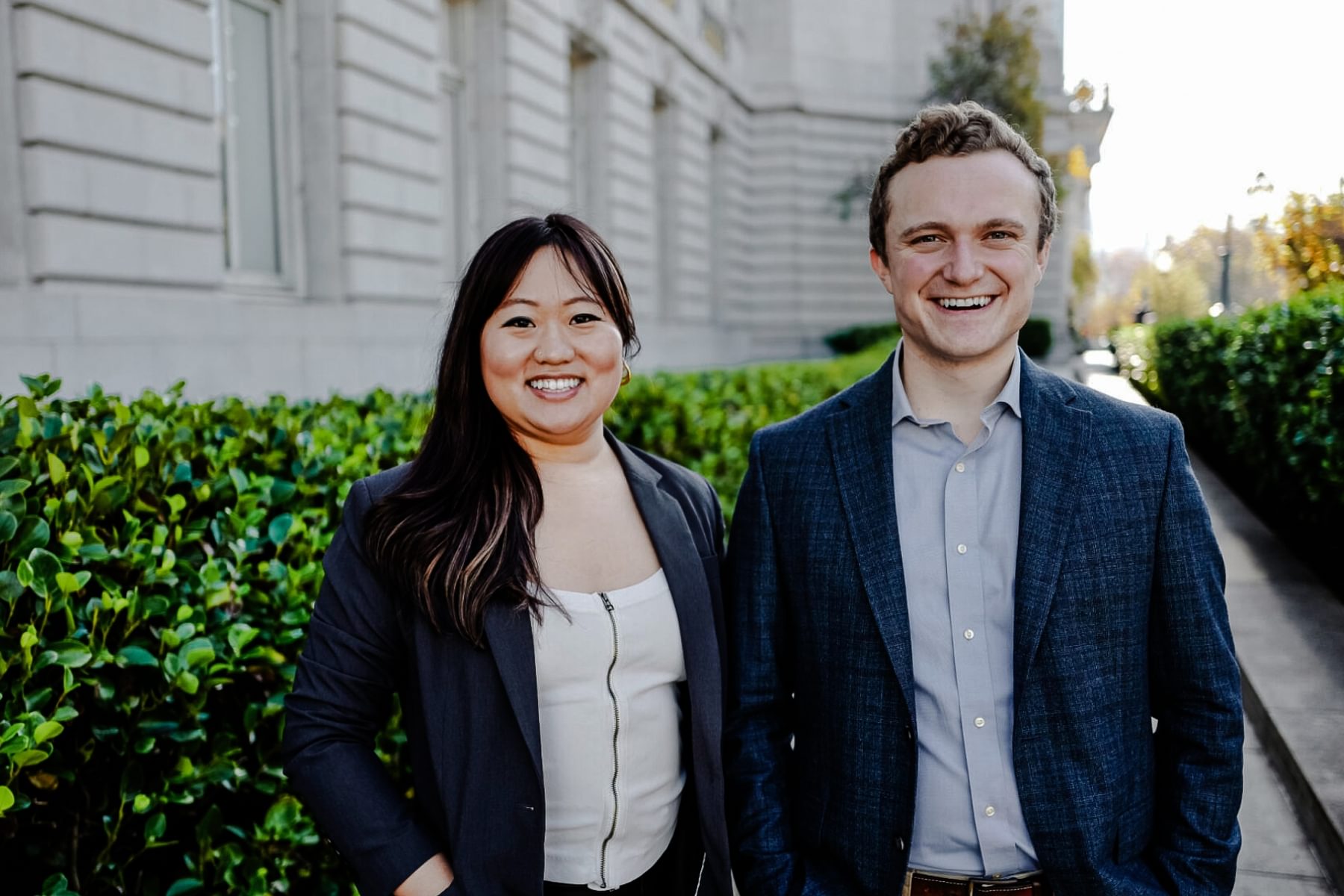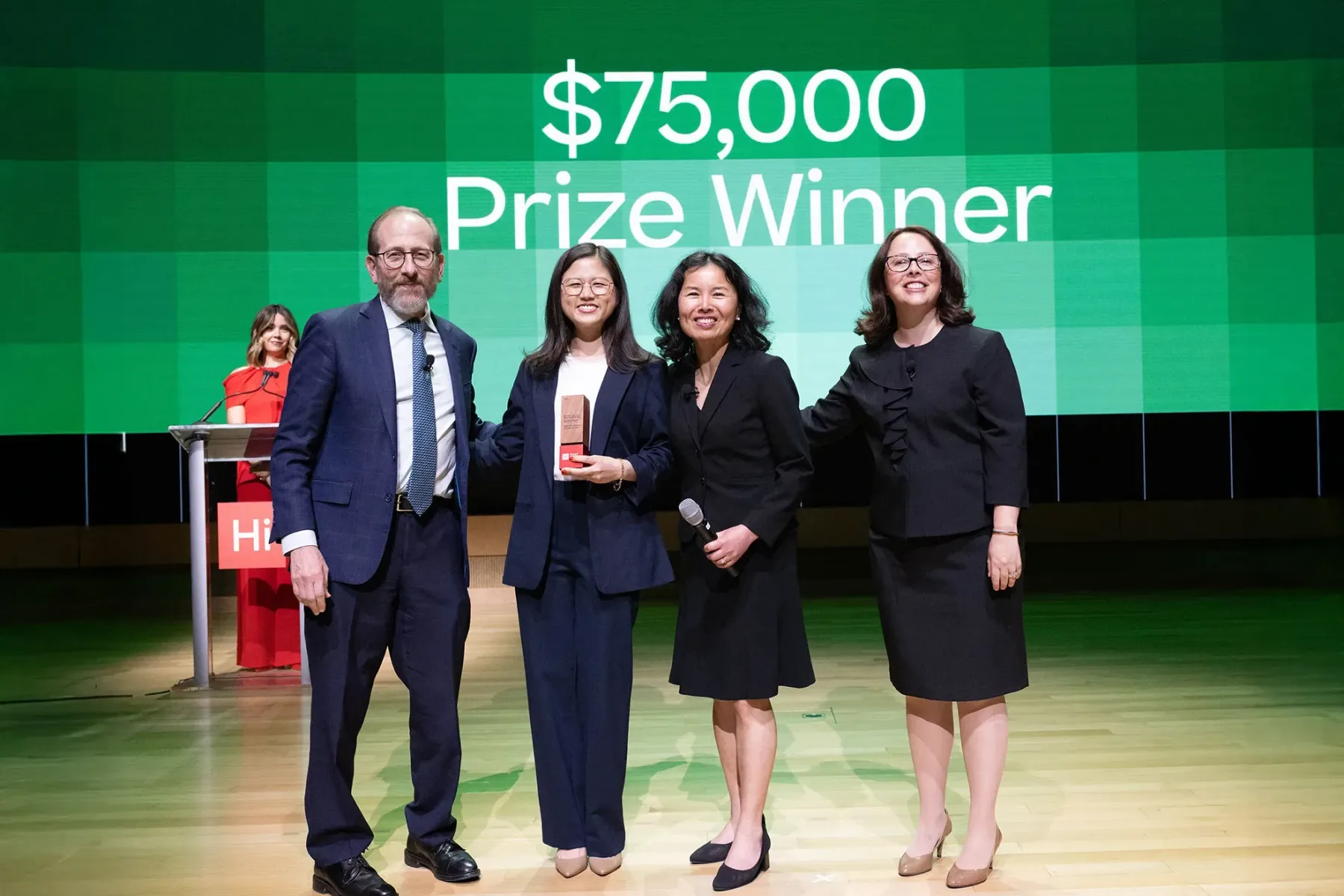The Harvard Innovation Labs is welcoming 25 ventures into the 2023-2024 Launch Lab X GEO cohort, a global startup leadership program designed to help early-stage, Harvard alumni-led ventures grow into sustainable and disruptive businesses.
“When we recently gathered in person for the Launch Lab X GEO kickoff, I had the pleasure of meeting extraordinary founders from all over the world and hearing about their visions for innovation across industries,” said Matt Segneri, Bruce and Bridgitt Evans Executive Director of the Harvard Innovation Labs. “Our team at the Harvard Innovation Labs has designed a meaningful program for this global cohort, featuring a range of tactical workshops, founder talks, leadership circles, pitch feedback sessions, and more. In the coming months, I have no doubt that the Launch Lab X GEO founders will make tremendous progress in developing their ventures.”
Launch Lab X GEO has three pillars of programming: operations, fundraising, and leadership. The Harvard Innovation Labs team of advisors and experts support founders in developing operational expertise and provide rigorous feedback on their businesses as they prepare to raise capital and grow all aspects of their ventures. Throughout the program, participants receive coaching to nurture their leadership skills, with a focus on building equity, diversity, inclusion, and belonging into their culture and practices from the start.
“This year’s Launch Lab X GEO cohort is working on an incredibly broad range of ideas, from using AI to develop custom-fit sneakers, to developing novel ways of mapping immune interactions,” said Thara Pillai, director of alumni programs and engagement at the Harvard Innovation Labs. “One of the biggest focal points of the Launch Lab X GEO program is not just bringing founders from across industries and geographies together, but facilitating community building in ways that help them create a lasting support system while providing the opportunities to learn and grow from within their peer group.”
This year’s Launch Lab X GEO ventures come from seven countries, representing 11 Harvard schools. More than 50% of the ventures have a woman founder. The 25 ventures selected to participate include:
- Aperture Bio (Harvard Business School): Realizing orders-of-magnitude improvements in speed and sensitivity, Aperture rapidly analyzes proteins in whole cells to map immune interactions.
- Archslate (Harvard Graduate School of Design): A marketplace transforming the architecture and construction workforce through AI-driven hiring and upskilling.
- Beaver Health (Harvard College): AI-enabled assistive technologies to improve the health and well-being of older adults and their caregivers.
- Bitmal (Harvard Kennedy School): A social fintech solution that rewards community solutions and contributions and a trusted fund distribution channel optimizing transparency and accountability.
- CartaBio (Harvard Medical School): A single-cell precision medicine techbio that uses proprietary spatial biology and AI to decode novel disease biology.
- Civic Roundtable (Harvard Business School and Harvard Kennedy School): A collaboration platform for the 22 million state and local public servants.
- Elisa (Harvard Business School): The first end-to-end producer and distributor of fresh children's food in Latin America.
- GoTeacher (Harvard Graduate School of Education): An AI-powered planner and content aggregator that helps teachers and schools build lesson plans collaboratively.
- How to Change the World (Harvard Kennedy School): Teaching higher education students the mindsets and skills they need to apply their knowledge and experience to tackle real-world global challenges.
- IAMBIC (Harvard College): A next-gen shoe brand that custom-fits sneakers using AI, IAMBIC is dedicated to making shoes size-inclusive.
- Illumicell (Harvard T.H. Chan School of Public Health): Providing AI-based sperm testing for healthcare providers, enabling accurate at-home fertility assessments for patients.
- InConfidence (Harvard Medical School): A smart patch technology that delivers at-home posterior tibial nerve stimulation to treat urinary incontinence and overactive bladder.
- Indian School of Democracy (ISD) (Harvard Kennedy School): A non-partisan organization that conducts leadership programs for young adults (25-40 years old) who want to run for office and be ethical politicians.
- Inqui-Lab Foundation (Harvard Graduate School of Education): Nurturing problem-solving capacity among first-generation learners.
- Koroid (Harvard Medical School): An AI-powered platform for data-driven workforce and resource management, optimization, and logistics in the healthcare industry.
- Light RFP (Harvard Extension School): A procurement platform for property managers and owner-operators to find the best vendors for their properties.
- Meomind (Harvard College): Offering on-demand access to 600+ recorded therapy sessions and mental health tools for personalized, interactive self-care.
- Neuronspike Technologies (Harvard John A. Paulson School of Engineering and Applied Sciences): Developing efficient generative artificial intelligence for automating business operations, where customers will have their own private model just for them.
- Plantaizin' (Harvard College): A fun and tech-enabled plant-based snack brand that seeks to treat bodies well and do good in the world.
- Polis (Harvard Kenneth C. Griffin Graduate School of Arts and Sciences): Providing universities with personalized, data-driven, 1:1 virtual advising resources to cost effectively reduce student attrition.
- SubjectToClimate (Harvard Graduate School of Education): A nonprofit online connector for K-12 educators of all subjects to find credible and engaging materials on climate change at no cost.
- TecHustle (Harvard Law School): Helping African small businesses send and receive trade-related payments through the AFi payments platform.
- Univus (Harvard College): An audio-based, AI-powered app that simplifies online learning and collaboration between students, as well as between students and teachers.
- Vitally Health (Harvard T.H. Chan School of Public Health): Using several layers of clinical and molecular data to map early diagnosis of heart disease and digital therapies.
- WurQ (Harvard Extension School): A wearable system for athletes that automatically tracks and provides the most robust muscular and cardiovascular performance feedback on the market.





